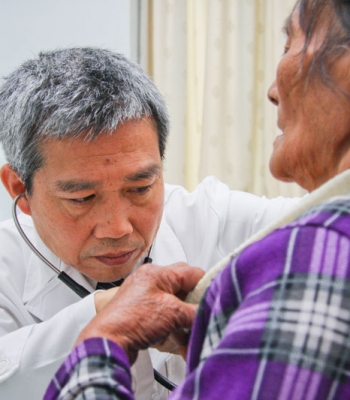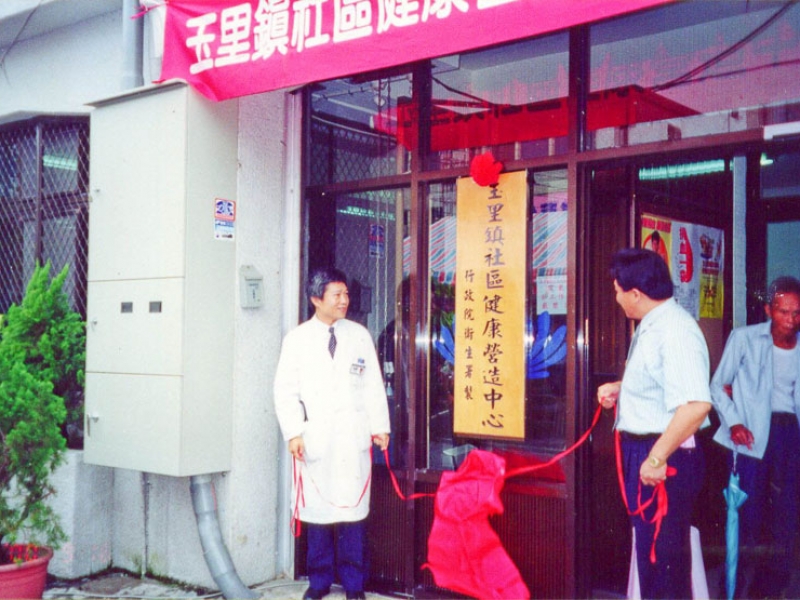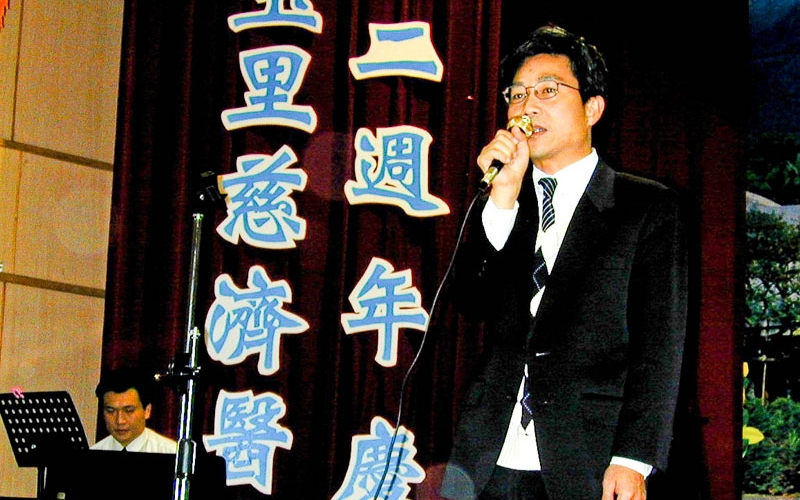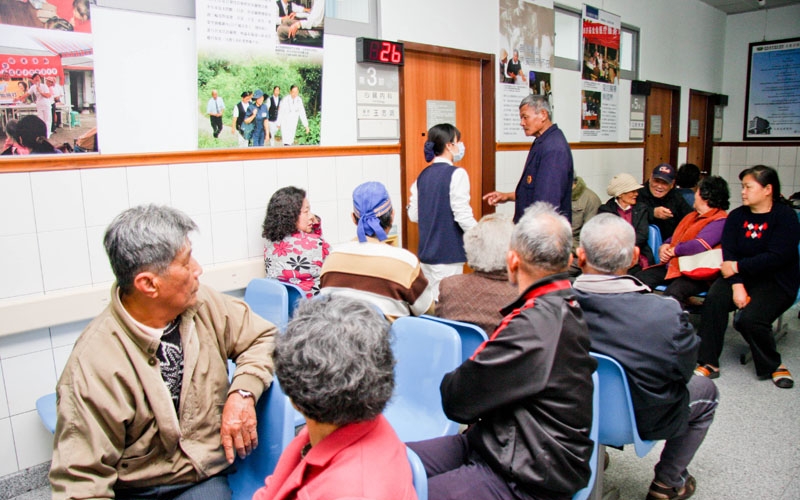Narrated by Dr. Ji-Hung Wang, Vice Superintendent of Hualien Tzu Chi Medical Center
Since 1999, I have taken an additional post as Superintendent of Yuli Tzu Chi Hospital. Frankly, the reason for me to take on the post was that I ran out of excuses not to accept the job. Before that, I was expected to accept the role as Director of Internal Medicine and Medical Affairs Department, yet I did not accept it because I did not have a teaching position. Yuli and Kuanshan hospitals are local so there was no teaching responsibility. The management team thought I work well with different people so they asked me to take up the position.
Doctors Working in Remote Areas
At that time, it was natural to support labor shortage of Yuli and Kuan shan because they are the extended part of Hualien Tzu Chi Medical Center. However, the most beneficial result they can get from Hualien is only about 60- 80%, that means having capable and willing doctors can reach 80% of the benefit. Most doctors have to go back to Hualien for retraining and to see family members, so the actual benefit is probably 60% or less. Sometimes, doctors come and go often, so according to the superintendent, the benefit is at most 10-20%. At the current medical market, capable clinical doctors who are patients oriented mostly reside in major cities; they are unlikely to go to remote places like Yuli and Kuanshan. However, almost all department heads in the Hualien Medical Center have served in remote areas in the past.
Dr. Ji-Hung Wang, Superintendent of Yuli Tzu Chi Hospital, at the inauguration of Yuli Township Health Center.
At that time, those doctors include Hann-Chorng Kuo, Ing-Ho Chen, and Ming-Che Lee from the surgical department, Wen-Tien Wu from the orthopedics department, and ChengFeng Lin from Taipei Tzu Chi Hospitals’ cardiology department. From the name list, one can tell they either have common ideology or are once teacher and student relationship. These pioneers are now prominent doctors in their respective field; they have set excellent examples by serving in remote areas when they were young.
Dr. Wang is making his speech at Yuli Tzu Chi Hospital’s second anniversary.
Patients’ Right Is a Priority
The reason for me to keep going to the southern area to see patients is to save their time and money. One of my patients told me, “It cost me almost NT$4000 on taxi from Yuli to Hualien to see doctors. Sometimes I need to find a car pool to share the cost.” Often times it takes two days for a patient to see a doctor because of the distance. For elderly and disabled patients, it would take more time and money, as they would need family members to accompany them. Once a taxi driver told me, “Dr. Wang, please stop going Yuli to see patients, my business has dropped dramatically because of it!”
The exact reason for me to continue going to Yuli and Kuanshan is my patients. On average, cardiac patients need to see a doctor once a month to three months. I used to go there once a week; Kuanshan in the morning and Yuli in the afternoon. However due to a high volume of patients, the quality of care is not what I expected. Therefore, I reduced my time in Taipei or other places, even at Hualien Tzu Chi Medical Center. If I do not go, there will not be any experienced cardiologist there.
Some people think it is less strenuous working in the countryside. However, it is my responsibility to see patients no matter where, or under what circumstances. It is the same principle; the key is to play our roles well to enrich our lives. In addition, there are two major benefits. In Yuli or Kuanshan there are patients that need to be brought back to Hualien Medical Center for continuing treatment, thus increasing our service quantity, and at the same time, we have more cases studies.
It seems there are not too many patients in Yuli and Kuanshan area. Yet there are a total of six to seven hundred patients on my monthly visit log. Each time, there are more than a hundred patients that register for appointments. I start seeing patients at seven in the morning until three or four in the afternoon. Most of my patients are on long-term prescriptions, and see me every three months. If there is no clinic in Yuli or Kuanshan, then there will be one hundred people going to Hualien to see doctors each month. From the patients’ perspective, each doctor in Yuli can save them up to two days of transportation time, as well as money and energy for seeing doctors in Hualien.
Insist on Providing the Best Medical Care
The causes of my patients’ illnesses are either physiological or psychological. Patients of psychological causes are the result of endocrine or nervous system disorders that do not necessarily need to see a doctor. However, patients with physiological causes need to see a doctor, and they are my main patients. The diagnosis and medication prescriptions play crucial roles in their health. Without proper medicine or experienced doctors to prescribe the right medicine, their health would worsen in just a few days. To those chronically and seriously ill patients, they must have an experienced cardiologist to take care of them. My main purpose is to provide good quality medical care.
Patients wait in line early in the morning to see the most trustworthy Dr. Ji-Hung Wang.
By doing so, we are propagating the characteristic quality of Tzu Chi medical care. For example, my patients know I start seeing patients at 7 o’clock sharp unless I have an urgent matter. I insist on commitment; I did not act on impulse to start seeing patients at 7 o’clock. I moved up the regular starting time from 9 o’clock to 7 o’clock so that I can have enough time to do quality work. And now, other departments also start at 7 o’clock. Those two extra hours can ensure quality, and I start seeing patients at 7 o’clock in Hualien as well as in Yuli and Kuanshan. So that means I leave my house before five in the morning in order to be there on time. I often encourage young doctors that persistency is important; it is not easy to maintain the level of commitment. Many people give up, which is a shame. However, for me it is my responsibility.
Patients’ Trust Is My Greatest Reward
In the continuance of my practice, the greatest reward is the feedback from patients. Not long ago, a doctor who graduated two years after me had a heart attack. He is a director of nephrology and has performed many cardiac catheterization surgeries himself. He first thought of me to be his primary care doctor. I believe being a doctor is to earn trust. The greatest reward from patients is their earned trust.
I always enjoy being a doctor. No matter where I am, I love to be a doctor and heal patients. I think to practice in a place where I am needed the most is more meaningful than to the place where I want to go. I am not one bit tired after more than a decade of work, nor giving it up for retirement. I even want to increase my hours for patients. I will keep my duties until I am no longer a doctor. That is my commitment and responsibility to my patients.





